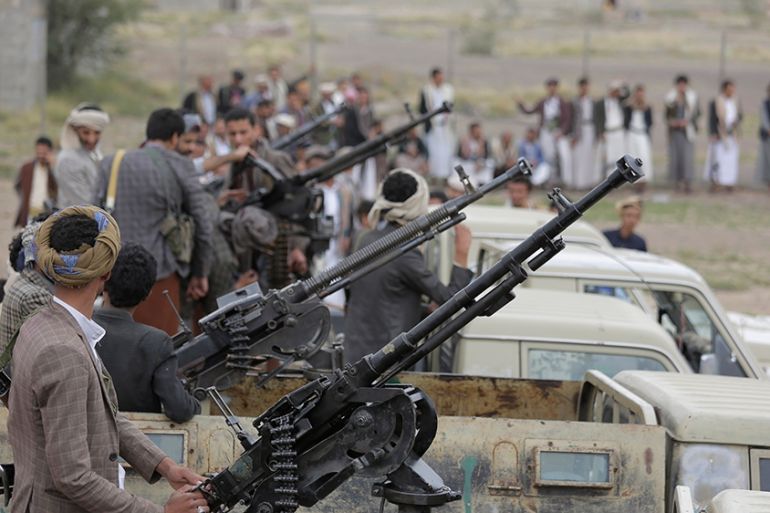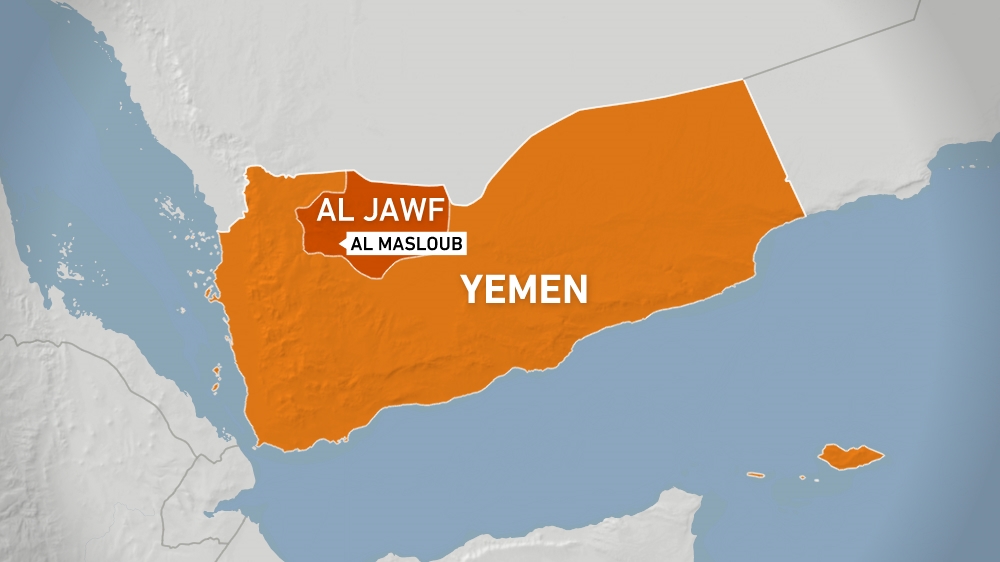Yemen’s warring sides agree to ‘large-scale’ prisoner exchange
Internationally-recognised government and rebels agree to implement long-delayed and major prisoner swap deal, UN says.

Yemen‘s warring sides have agreed to implement a major prisoner swap, the United Nations has said, in a breakthrough that came after another bout of heavy fighting, including air raids by a Saudi-UAE-led military coalition that killed dozens of civilians.
Sunday’s announcement over the long-delayed exchange came after seven days of meetings in Jordan’s capital, Amman, between the Houthi rebels and the internationally-recognised government, which is backed by the coalition.
Keep reading
list of 3 items30 Yemenis medically evacuated for the first time in three years
Houthis possess arms ‘similar’ to those made in Iran: UN report
The UN mission in Yemen said in a statement that both sides had decided to “immediately begin with exchanging the lists for the upcoming release” of prisoners, calling it the “first official large-scale” exchange of its kind since the beginning of the long-running conflict.
“Today the parties showed us that even with the growing challenges on the ground, the confidence they have been building can still yield positive results,” UN envoy Martin Griffiths said.
Concluding a 7-day meeting in #Amman, the parties agreed on details to complete the 1st exchange of prisoners-a step towards fulfilling their commitment to the phased release of all detainees related to the conflict in #Yemen as per the #StockholmAgreement:https://t.co/3csEU8G0vu
— @OSE_Yemen (@OSE_Yemen) February 16, 2020
The UN mission did not disclose specific numbers for the expected prisoner exchange but Abdul-Qader al-Murtaza, a rebel official in charge of prisoners’ affairs, said in a tweet that the first phase of the deal included the release of more than 1,400 prisoners from the two sides.
He said talks would continue for another two days to “prepare and revise the final lists”.
The discussions were co-chaired by Griffiths’ office and the International Committee of the Red Cross (ICRC). Representatives from the Saudi-UAE-led coalition also attended the talks, the UN said.
Griffiths urged both parties to move forward with the agreed-upon prisoner exchange “with the utmost sense of urgency”. He did not elaborate when they would start the exchange.
Franz Rauchenstein, the head of the ICRC in Yemen’s capital, Sanaa, welcomed the step as “encouraging”.
The prisoner swap deal was seen as a breakthrough during 2018 peace talks in Sweden. The Houthis and the government of President Abd-Rabbu Mansour Hadi agreed at the time to several confidence-building measures, including a ceasefire in the strategic port city of Hodeidah.
Implementation of the tentative peace plan stumbled amid ongoing military offensives and a deep-seated distrust between the two sides.

The conflict in the Arab world’s poorest country broke out in late 2014, when the Houthis seized the capital, Sanaa, and much of the country’s north. Months later, the Saudi-UAE-led coalition launched a military intervention in a bid to restore Hadi’s government.
Since then, nearly 20,500 air raids have been carried out in the country, according to information collected by the Yemen Data Project.
On Sunday, the Houthis said more than 30 civilians were killed in coalition air raids, with the UN confirming the death toll as it deplored a “shocking” failure to protect the war-torn country’s unarmed population.
The attack in the northern al-Jawf province came after a coalition fighter jet crashed in the same area, with the rebels saying they had shot it down.
The Houthis said women and children were among the dead and wounded in the air raids, while the Western-backed coalition fighting the rebels acknowledged the “possibility of collateral damage” during a “search and rescue operation” at the crash site of the Saudi plane.
The renewed fighting threatened to overshadow the hopes raised by back-channel talks in Oman between Saudi Arabia and the Houthis.
The talks focus on interim agreements, such as re-opening Yemen’s main international airport in Sanaa, which was shut down by the coalition in 2016.
In a sign of progress, two UN flights ferrying dozens of seriously ill Yemenis abroad for treatment took off last week from the rebel-held capital, the first since the start of the air blockade.